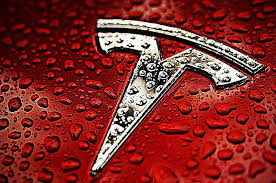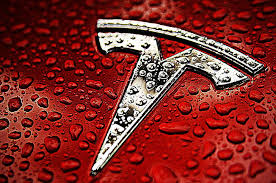
The use of less expensive, iron-based batteries will be extended by Tesla Inc. to a more economical electric vehicle as well as a version of its Semi big electric trucks.
Elon Musk, the CEO of Tesla, has promoted the lithium iron phosphate (LFP) battery technology that is largely produced by Chinese vendors, claiming that "the vast majority of the heavy lifting for electrification will be iron-based cells" in a statement made in March.
Due to the political difficulties between the United States and China, it is difficult to get Chinese suppliers to develop battery plants in the United States.
The largest manufacturer of electric vehicles in the world stated in its paper titled "Master Plan Part 3" published on Wednesday that it will employ LFP batteries for "short-range" heavy electric trucks that it refers to as "Semi Light," though it did not provide any other information, such as a launch date.
In December of last year, Tesla began shipping its semi-electric trucks, which have nickel-based batteries and a longer, 500-mile range between charges. Tesla has already declared that it will also release a model with a 300-mile range.
The company said that compared to the 75 kWh of the Model Y and Model 3 batteries, the projected tiny electric vehicles will have LFP batteries with a capacity of 53 kilowatt-hours (kWh).
Tesla announced last month that it will slash assembly costs in half for next models of vehicles that would be produced at its factories in Mexico and other countries.
Without providing a timeframe, Tesla stated that LFP batteries will also be used in its mid-sized Model 3 and Model Y vehicles.
The majority of Tesla's Model 3 and Model Y vehicles sold in the US currently have nickel-based batteries.
Musk and other LFP proponents pointed to the plentiful supply and lower cost of iron as a crucial factor outweighing the disadvantages preventing the widespread deployment of LFP cells. They have a lesser range than nickel-based cells since they are larger, heavier, and typically carry less energy.
In comparison to nickel-based cells, LFP cells typically have a lower fire risk.
Tesla presently purchases LFP batteries from Contemporary Amperex Technology Co. in China, a company without a facility in the US. LG Energy Solution, a South Korean supplier to Tesla, announced that the envisioned Arizona factory would produce LFP batteries.
(Source:www.businesstoday.in)
Elon Musk, the CEO of Tesla, has promoted the lithium iron phosphate (LFP) battery technology that is largely produced by Chinese vendors, claiming that "the vast majority of the heavy lifting for electrification will be iron-based cells" in a statement made in March.
Due to the political difficulties between the United States and China, it is difficult to get Chinese suppliers to develop battery plants in the United States.
The largest manufacturer of electric vehicles in the world stated in its paper titled "Master Plan Part 3" published on Wednesday that it will employ LFP batteries for "short-range" heavy electric trucks that it refers to as "Semi Light," though it did not provide any other information, such as a launch date.
In December of last year, Tesla began shipping its semi-electric trucks, which have nickel-based batteries and a longer, 500-mile range between charges. Tesla has already declared that it will also release a model with a 300-mile range.
The company said that compared to the 75 kWh of the Model Y and Model 3 batteries, the projected tiny electric vehicles will have LFP batteries with a capacity of 53 kilowatt-hours (kWh).
Tesla announced last month that it will slash assembly costs in half for next models of vehicles that would be produced at its factories in Mexico and other countries.
Without providing a timeframe, Tesla stated that LFP batteries will also be used in its mid-sized Model 3 and Model Y vehicles.
The majority of Tesla's Model 3 and Model Y vehicles sold in the US currently have nickel-based batteries.
Musk and other LFP proponents pointed to the plentiful supply and lower cost of iron as a crucial factor outweighing the disadvantages preventing the widespread deployment of LFP cells. They have a lesser range than nickel-based cells since they are larger, heavier, and typically carry less energy.
In comparison to nickel-based cells, LFP cells typically have a lower fire risk.
Tesla presently purchases LFP batteries from Contemporary Amperex Technology Co. in China, a company without a facility in the US. LG Energy Solution, a South Korean supplier to Tesla, announced that the envisioned Arizona factory would produce LFP batteries.
(Source:www.businesstoday.in)














